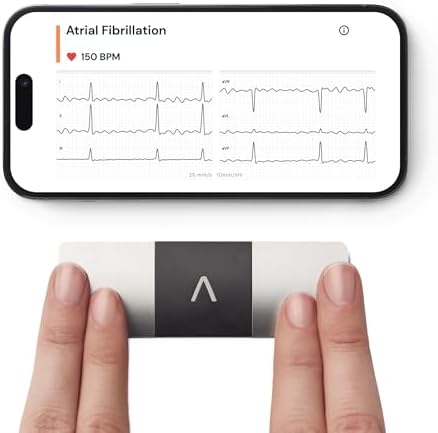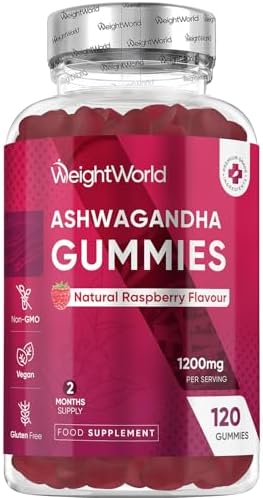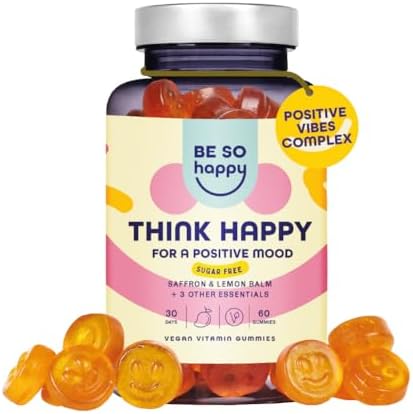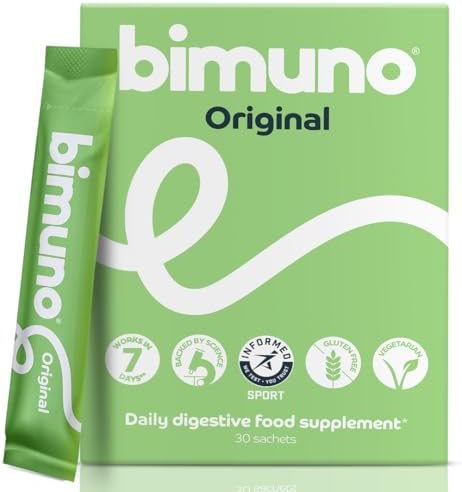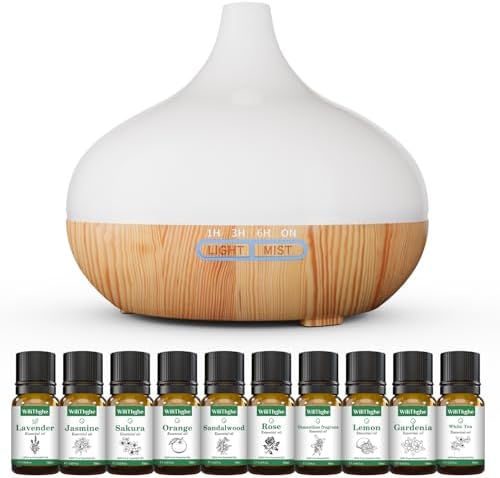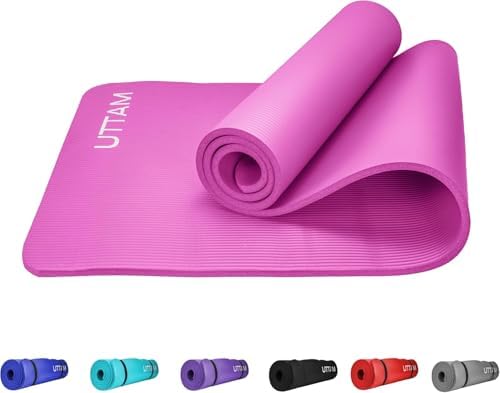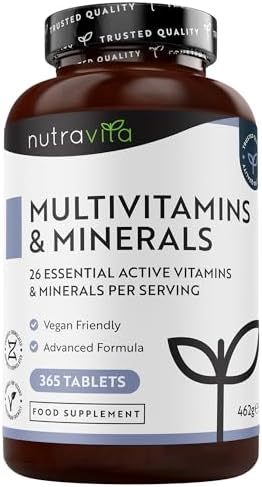Welcome to this week’s deep dive into natural health and wellness. Here, we bring together the key themes from our latest features—mood, immunity, fitness, supplements, energy, and recovery—into one powerful guide. Think of this as your exclusive wrap-up: where all the insights connect, and the benefits multiply when combined.

Discover what works for you — hover over the images below to explore blogs tailored to your interests.


Must-See Sections

The Sleep-Stress-Longevity Connection: How Recovery Shapes Your Health Future
Your body sends you signals every day. That afternoon energy crash hits without warning. Meanwhile, restless nights before important meetings leave you exhausted, while persistent aches seem to multiply with each passing year. However, these aren’t just random inconveniences—they’re actually connected pieces of a complex health puzzle.
Fortunately, scientists now understand that sleep, stress, and longevity form an intricate triangle. Moreover, each point influences the others in ways that can either accelerate aging or help you thrive well into your golden years.
Why Your Sleep Quality Determines Everything
Sleep acts as your body’s master reset button. During those precious hours of rest, your brain clears toxins while your muscles repair themselves. Additionally, your immune system strengthens its defenses against daily threats.
Unfortunately, poor sleep quality triggers a cascade of problems. First, your stress hormone cortisol stays elevated longer than it should. Next, your appetite-regulating hormones go haywire, leading to cravings and weight gain. Finally, your body struggles to repair cellular damage from daily wear and tear.
Indeed, research shows that people who consistently get less than six hours of sleep per night face a 30% higher risk of early death. Furthermore, those who sleep poorly also experience faster cellular aging, essentially adding years to their biological age.
As a result, quality sleep trackers have revolutionized how we understand our rest patterns. These modern devices monitor your sleep stages, heart rate variability, and movement patterns throughout the night. Consequently, this data reveals exactly when and why your sleep gets disrupted.
- Recovery, Redesigned: Train, sleep, and rest with confidence thanks to accurate heart rate, fatigue, and recovery tracki…
- BioCharge Energy Monitoring: From the moment you wake up after a night of rest, your BioCharge score will adapt based on…
- 24/7 Advanced Health Tracking: Get pinpoint heart rate data while training, and stay informed all day with continuous mo…
The Hidden Cost of Chronic Stress
Stress doesn’t just make you feel overwhelmed—it literally ages you from the inside out. Specifically, chronic stress shortens your telomeres, which are the protective caps on your chromosomes that determine cellular aging.
In fact, your body treats ongoing stress like a constant emergency. It pumps out stress hormones continuously, increases inflammation throughout your system, and diverts energy from repair processes to immediate survival needs.
Over time, this chronic state wreaks havoc on every system in your body. Your cardiovascular system works overtime while your digestive system struggles to process nutrients properly. Meanwhile, your brain fog increases as your memory suffers.
Therefore, breaking this cycle requires targeted intervention. Specifically, stress-relief tools like meditation apps, breathing exercise devices, and aromatherapy diffusers help activate your parasympathetic nervous system. As a result, this shifts your body from fight-or-flight mode into rest-and-repair mode.
How Recovery Transforms Your Cellular Future
Recovery isn’t just about feeling better tomorrow—it’s about programming your cells for longevity. During deep recovery periods, your body produces growth hormone. At the same time, it repairs DNA damage and strengthens mitochondrial function.
Importantly, active recovery strategies multiply these benefits. Light exercise and gentle stretching support your body’s natural repair mechanisms, while targeted nutrition provides essential building blocks. Furthermore, recovery tools like compression therapy devices and infrared saunas enhance circulation and reduce inflammation.
Ultimately, your recovery routine becomes an investment in future vitality. Each night of quality sleep and each stress-reduction session adds up over months and years. Therefore, small daily improvements compound into dramatic long-term health benefits.
The Science Behind Sleep Stages and Longevity
Your brain cycles through distinct sleep stages throughout the night. Each stage serves specific functions that directly impact your aging process.
Light sleep helps consolidate memories and process emotions. Deep sleep triggers physical repair and immune system strengthening. REM sleep enhances creativity and clears metabolic waste from your brain.
Disrupted sleep stages accelerate aging markers. People with poor deep sleep show increased inflammation, reduced growth hormone production, and faster cognitive decline.
Sleep optimization tools help you maximize each stage. Blue light blocking glasses prepare your brain for natural melatonin production. White noise machines and blackout curtains create ideal sleep environments. A memory foam mattress topper adds comfort, support, and pressure relief to your bed.
Breaking the Stress-Sleep Vicious Cycle
Stress and poor sleep feed off each other in a destructive loop. Stress makes it harder to fall asleep and stay asleep. Poor sleep makes you more reactive to stress the next day.
This cycle compounds over time. Each bad night makes the next day more stressful. Each stressful day makes the following night’s sleep more elusive. Breaking free requires addressing both sides simultaneously.
Natural sleep aids like magnesium supplements and herbal teas support relaxation without creating dependency. Stress-management tools like meditation cushions and journal prompts help process daily tensions before bedtime.
Your Personalized Recovery Blueprint
Everyone’s optimal recovery routine looks different. Your age, lifestyle, stress levels, and health conditions all influence what works best for you.
Start by tracking your current patterns. Sleep journals and stress monitoring apps reveal your personal triggers and recovery needs. This baseline data guides your optimization strategy.
Experiment with different tools and techniques systematically. Try one new recovery method for at least two weeks before adding another. This approach helps you identify what actually moves the needle for your specific situation.
The Technology Revolution in Sleep and Recovery
Modern recovery technology puts laboratory-level insights at your fingertips. Heart rate variability monitors reveal your nervous system’s daily readiness. Sleep tracking devices identify exactly when your recovery improves or declines.
Smart home technology creates optimal recovery environments automatically. Programmable thermostats maintain ideal sleeping temperatures. Light therapy devices sync with your circadian rhythms. Air purifiers ensure clean, oxygen-rich environments for deeper rest.
These tools transform recovery from guesswork into precision science. You can see exactly how different strategies affect your sleep quality, stress levels, and recovery markers.
The Compound Effect of Consistent Recovery
Small daily improvements in sleep and stress management create exponential long-term benefits. Better sleep improves stress resilience. Lower stress enhances sleep quality. Both factors slow cellular aging and extend healthspan.
This compound effect becomes more pronounced over time. People who prioritize recovery in their 30s and 40s often look and feel decades younger than their peers by their 60s and 70s.
Your recovery investments pay dividends for life. Each improvement builds upon previous gains, creating an upward spiral of enhanced vitality, mental clarity, and physical resilience.
Taking Action Today for Tomorrow’s Vitality
Your sleep and stress patterns right now are shaping your health future. The choices you make today about recovery will determine how you age over the coming decades.
Start with one simple change. Choose a single sleep optimization tool or stress-reduction technique. Implement it consistently for two weeks and track the results.
As you experience improvements, add complementary strategies. Build a comprehensive recovery system that addresses your unique needs and lifestyle constraints.
Your future self will thank you for every night of quality sleep and every moment of stress relief you prioritize today. The path to longevity isn’t about dramatic overhauls—it’s about consistent, thoughtful recovery practices that compound over time.
Remember: you can’t out-exercise poor sleep or out-supplement chronic stress. But you can absolutely out-recover the aging process with the right tools, knowledge, and commitment to your long-term vitality.

How Stress Affects Every System in Your Body (and How to Reverse the Damage)
You know that feeling when deadlines pile up, bills arrive, and your phone won’t stop buzzing? Your heart races, your shoulders tense, and suddenly everything feels overwhelming. Here’s what many people don’t realize: that stress response isn’t just happening in your head. It’s cascading through every single system in your body like dominoes falling in sequence.
The good news? Understanding how stress works gives you the power to fight back. Let’s dive into what’s really happening inside your body and discover practical ways to reverse the damage.
Your Body’s Alarm System Goes Haywire
Imagine your body as a sophisticated security system. When stress hits, this system sounds every alarm at once. Your brain releases cortisol and adrenaline, flooding your bloodstream with stress hormones designed for short-term emergencies.
Originally, this response helped our ancestors escape predators. Now, it activates during traffic jams, work presentations, and endless social media scrolling. The problem? Your body can’t tell the difference between a charging tiger and a demanding boss.
How Stress Hijacks Your Heart and Circulation
First, let’s talk about your cardiovascular system. Chronic stress literally changes how your heart works. When cortisol levels stay elevated, your blood pressure rises consistently. Meanwhile, stress hormones make your blood stickier, increasing clot formation risk.
Your heart starts working overtime, pumping harder and faster than necessary. This constant pressure damages artery walls over time. Additionally, stress triggers inflammation throughout your circulatory system, creating the perfect storm for heart disease.
Think about it: every time you feel stressed, your cardiovascular system goes into emergency mode. Day after day, this takes a serious toll.
Your Immune System Under Siege
Next, stress wages war on your immune system. Initially, acute stress boosts immune function. However, chronic stress does the opposite—it suppresses your body’s natural defenses.
Cortisol reduces white blood cell effectiveness, making you more susceptible to infections. Furthermore, chronic stress accelerates cellular aging and increases inflammation markers throughout your body. This explains why stressed people catch colds more often and recover more slowly.
Your immune system essentially becomes confused, sometimes attacking healthy tissue while missing real threats. Autoimmune conditions often flare up during particularly stressful periods.
Digestive Chaos From Head to Toe
Meanwhile, your digestive system suffers tremendously under chronic stress. Blood flow redirects away from digestion toward muscles and vital organs. This disruption affects everything from nutrient absorption to gut bacteria balance.
Stress increases stomach acid production while decreasing protective mucus. The result? Heartburn, ulcers, and digestive discomfort become constant companions. Moreover, stress alters gut microbiome composition, affecting mood and overall health.
Many people notice that stressful periods coincide with digestive issues. This isn’t coincidental—your gut truly responds to emotional stress.
Your Brain Under Pressure
Perhaps most concerning, chronic stress physically changes your brain structure. High cortisol levels shrink the hippocampus, the region responsible for memory formation. Simultaneously, the amygdala (fear center) becomes hyperactive and enlarged.
This creates a vicious cycle: stress makes you more reactive to future stressors while impairing your ability to form positive memories. Concentration becomes difficult, decision-making suffers, and emotional regulation deteriorates.
Sleep patterns also shift dramatically under stress. Your brain struggles to enter restorative deep sleep phases, leaving you tired but wired.
Hormonal Havoc Throughout Your Body
Furthermore, stress disrupts your entire endocrine system. Cortisol interferes with insulin sensitivity, making blood sugar regulation challenging. This explains why stressed people often crave sugary, high-carb foods—their bodies desperately seek quick energy.
Reproductive hormones also take a hit. Stress can disrupt menstrual cycles, reduce fertility, and decrease libido in both men and women. Your body essentially puts reproduction on hold during perceived emergencies.
Thyroid function often becomes sluggish under chronic stress, slowing metabolism and affecting energy levels throughout the day.
Muscles, Joints, and Physical Pain
Additionally, chronic stress creates persistent muscle tension. Your shoulders, neck, and jaw bear the brunt of this constant contraction. Over time, this tension leads to headaches, joint pain, and reduced mobility.
Stress hormones also interfere with tissue repair processes. Minor injuries take longer to heal, and chronic pain conditions often worsen during stressful periods. Your body simply can’t prioritize healing when it’s constantly preparing for danger.
The Hidden Damage to Your Skin
Even your skin shows stress’s impact. Cortisol breaks down collagen, accelerating aging and reducing skin elasticity. Stress also triggers inflammatory skin conditions like eczema, psoriasis, and acne flare-ups.
Your skin becomes more sensitive to environmental irritants while healing more slowly from blemishes or minor cuts. Essentially, stress ages you from the inside out.
Breaking the Stress Cycle: Your Recovery Roadmap
Now for the empowering part: you can reverse much of this damage. Your body has remarkable healing abilities once you give it the right support.
Breathwork: Your Instant Reset Button
Start with something simple yet powerful: controlled breathing. Deep, diaphragmatic breathing immediately activates your parasympathetic nervous system, countering stress hormones within minutes.
Try the 4-7-8 technique: inhale for 4 counts, hold for 7, exhale for 8. This simple practice signals safety to your nervous system. Many people find guided breathing apps helpful for maintaining consistency.
Movement as Medicine
Exercise might seem like the last thing you want during stressful times, but it’s actually one of your most powerful tools. Physical activity metabolizes stress hormones while releasing mood-boosting endorphins.
You don’t need intense workouts. Even a 10-minute walk can significantly reduce cortisol levels. Dancing, yoga, or gentle stretching all provide benefits. The key is moving your body regularly, not perfectly.
Nutrition That Heals
Your diet directly impacts stress resilience. Processed foods and excessive caffeine amplify stress responses, while nutrient-dense whole foods provide the building blocks for recovery.
Focus on foods rich in magnesium, omega-3 fatty acids, and B vitamins. These nutrients support nervous system function and help regulate stress hormones. Consider incorporating adaptogenic herbs like ashwagandha or rhodiola, which have been shown to help the body adapt to stress more effectively.
High-quality supplements can bridge nutritional gaps when whole foods aren’t enough. Look for third-party tested products with bioavailable forms of key nutrients.
Sleep: Your Restoration Foundation
Quality sleep remains non-negotiable for stress recovery. During deep sleep, your brain clears metabolic waste while your body repairs stress-related damage.
Create a consistent bedtime routine and optimize your sleep environment. Cool, dark rooms promote better sleep quality. Additionally, limiting screen time before bed helps regulate natural melatonin production.
Some people benefit from natural sleep support supplements containing ingredients like magnesium glycinate, L-theanine, or melatonin. These can help ease the transition into restorative sleep cycles.
Mindfulness and Mental Training
Regular mindfulness practice literally rewires your brain’s stress response. Just 10 minutes of daily meditation can increase gray matter in areas associated with emotional regulation while shrinking the overactive amygdala.
Mindfulness apps make this practice accessible and convenient. Start small—even three minutes of focused breathing creates positive changes over time.
Building Your Support Network
Human connection acts as a powerful stress buffer. Social support triggers oxytocin release, which counters cortisol’s harmful effects. Regular contact with friends, family, or support groups provides emotional resilience.
Don’t underestimate the power of professional support when needed. Therapists, counselors, and coaches offer tools for managing stress more effectively.
The Recovery Timeline: What to Expect
Recovery doesn’t happen overnight, but you’ll notice improvements quickly. Within days of implementing stress-reduction strategies, sleep quality often improves. Energy levels typically increase within the first week.
After several weeks, you might notice better digestion, clearer thinking, and improved mood stability. Long-term changes—like improved cardiovascular health and stronger immunity—develop over months of consistent effort.
Remember, your body wants to heal. Every small step you take toward stress management supports this natural healing process.
Your Path Forward: Small Steps, Big Results
The journey from chronic stress to vibrant health doesn’t require perfection. Start with one or two strategies that resonate with you. Maybe it’s five minutes of morning breathing exercises or swapping your afternoon coffee for herbal tea.
As these habits become natural, gradually add more stress-busting tools to your arsenal. Progress, not perfection, creates lasting change.
Your body has carried you through every challenge so far. Now it’s time to give it the support it deserves. With the right approach, you can not only reverse stress damage but build resilience that serves you for years to come.
The choice is yours: continue letting stress control your health, or take back your power and start healing today. Your future self will thank you for every positive step you take right now.

The Mind-Body-Immune System Connection: What Science Says About Your Body’s Hidden Superpower
Have you ever noticed how you catch a cold right after a stressful week at work? Or wondered why some people seem to bounce back from illness faster than others? The answer lies in one of the most fascinating discoveries in modern medicine: your mind, body, and immune system work together as a powerful team.
Scientists now understand that these three systems don’t operate in isolation. Instead, they communicate constantly through an intricate network of hormones, neurotransmitters, and immune cells. This connection affects everything from how quickly you recover from a workout to your ability to fight off seasonal bugs.
Your Brain Controls More Than You Think
Your brain acts as mission control for your entire immune response. When you feel stressed, worried, or overwhelmed, your brain sends chemical signals throughout your body. These signals can either strengthen or weaken your immune defenses.
Research from prestigious institutions like Harvard Medical School shows that chronic stress floods your system with cortisol. This hormone suppresses key immune functions, making you more susceptible to infections and slower to heal. Conversely, positive emotions trigger the release of endorphins and other beneficial chemicals that boost immunity.
Think of it this way: your thoughts literally shape your body’s ability to protect itself.
The Gut-Brain Highway
Scientists recently discovered that your gut contains more nerve cells than your spinal cord. This “second brain” in your digestive system communicates directly with your head brain through the vagus nerve, creating a two-way information superhighway.
About 70% of your immune system lives in your gut. The trillions of bacteria there don’t just help digest food—they actively train your immune cells and influence your mood through neurotransmitter production.
When your gut bacteria are balanced and healthy, they send positive signals to both your brain and immune system. However, poor diet, antibiotics, or stress can disrupt this delicate ecosystem.
Sleep: Your Immune System’s Best Friend
During sleep, your body performs critical maintenance work. Your brain clears out toxins, your muscles repair themselves, and your immune system creates new infection-fighting cells.
Studies reveal that people who sleep less than seven hours per night are three times more likely to catch a cold when exposed to viruses. Quality sleep also determines how well vaccines work—well-rested people produce stronger antibody responses.
Your circadian rhythm, controlled by light exposure and daily habits, orchestrates this entire process.
Exercise: The Ultimate Immune Booster
Regular physical activity creates a cascade of positive effects throughout your mind-body-immune network. Exercise increases circulation, allowing immune cells to travel more efficiently through your system. It also reduces inflammation and triggers the release of mood-boosting endorphins.
Moderate exercise—like a 30-minute walk or gentle yoga session—provides the most immune benefits. However, intense training without proper recovery can temporarily suppress immunity.
The key is finding the sweet spot that challenges your body without overwhelming it.
Nutrition: Fuel for Your Defense System
Your immune system requires specific nutrients to function optimally. Vitamin C, zinc, vitamin D, and antioxidants serve as building blocks for immune cells and help coordinate responses to threats.
Unfortunately, modern diets often lack these crucial nutrients. Processed foods can actually trigger inflammation, forcing your immune system to work overtime on the wrong targets.
Fresh fruits, vegetables, lean proteins, and healthy fats provide the raw materials your body needs to maintain strong defenses.
Social Connections Matter More Than You Know
Humans evolved as social creatures, and loneliness registers in your brain as a threat. Chronic isolation triggers stress responses that weaken immunity and increase inflammation.
Research from UCLA found that lonely people have different gene expression patterns—their bodies prepare for bacterial infections while becoming less effective against viral threats. Meanwhile, strong social bonds activate genes that enhance immune function.
Quality relationships, whether with family, friends, or community groups, literally strengthen your body’s defenses.
Practical Steps to Strengthen Your Mind-Body-Immune Connection
Start Small, Think Big
You don’t need to overhaul your entire life overnight. Small, consistent changes create powerful results over time. Begin with one area that feels manageable—perhaps improving your sleep schedule or taking a daily walk.
Create Daily Rituals
Your body thrives on routine. Establish consistent wake and sleep times, regular meal schedules, and designated stress-relief periods. These predictable patterns help synchronize your internal systems. Planners.
Listen to Your Body
Pay attention to how different activities, foods, and situations affect your energy and mood. Your body constantly provides feedback about what supports or undermines your health.
Build Your Support Network
Invest time in relationships that energize rather than drain you. Consider joining clubs, volunteering, or participating in group activities that align with your interests.
The Science Behind Mind-Body Medicine
Psychoneuroimmunology—the study of how psychological processes affect the immune system—has revealed remarkable connections. Meditation can increase telomerase activity, potentially slowing cellular aging. Laughter therapy boosts natural killer cells that fight tumors and viruses.
Even your posture influences your immune function. Standing tall and confident increases testosterone and decreases cortisol, creating an internal environment that supports health and resilience.
Warning Signs Your System Needs Support
Several symptoms suggest your mind-body-immune connection needs attention:
- Frequent colds or infections
- Slow wound healing
- Persistent fatigue despite adequate sleep
- Mood swings or increased anxiety
- Digestive issues or food sensitivities
- Difficulty concentrating or brain fog
Recognizing these early warning signs allows you to take action before minor imbalances become major health challenges.
- EVERYTHING YOU NEED IS INCLUDED: Your WHOOP purchase includes a 12-month WHOOP Peak membership, a WHOOP 5.0 device, a Su…
- CONTINUOUS MONITORING: WHOOP monitors your most important metrics, including sleep, heart rate, blood oxygen, stress, me…
- A HOLISTIC VIEW OF YOUR HEALTH: Understand your baseline vitals like heart rate and skin temperature with Health Monitor…
Your Path Forward
Understanding the mind-body-immune connection empowers you to take control of your health in ways previous generations never could. Every choice you make—from the thoughts you nurture to the foods you eat—influences your body’s ability to protect and heal itself.
The most exciting part? You can start strengthening these connections immediately. Your immune system responds to positive changes within hours or days, not months or years.
Remember, optimal health isn’t about perfection—it’s about progress. Each small step you take toward supporting your mind-body-immune network creates a foundation for lifelong wellness and vitality.
Your body has an incredible capacity for healing and protection when you provide the right support. By understanding and nurturing these powerful connections, you’re not just preventing illness—you’re unlocking your body’s potential for extraordinary health and resilience.
Ready to take the next step in supporting your mind-body-immune connection? Explore our carefully selected products designed to help you implement these science-backed strategies in your daily life.
Why 1 in 3 Adults Are Sleep-Deprived (And the Natural Fix Your Doctor Isn’t Telling You)
You toss. You turn. You check your phone for the third time tonight.
Sound familiar?
You’re not alone. Over 70 million Americans struggle with chronic sleep disorders right now. Even more alarming? One-third of all adults sleep less than the recommended seven hours each night.
Your body desperately needs rest. Yet quality sleep remains frustratingly out of reach for millions.
But here’s the good news: natural solutions exist that actually work. And most doctors never mention them during those rushed 15-minute appointments.
The Hidden Cost of Poor Sleep
Sleep deprivation does more than make you groggy. It wreaks havoc on every system in your body.
Your immune system weakens. Your risk of heart disease climbs. Weight gain becomes harder to prevent. Memory and focus deteriorate steadily over time.
Furthermore, chronic sleep loss increases your risk of diabetes, depression, and anxiety. These aren’t minor inconveniences. They’re serious health threats hiding in plain sight.
Most people blame stress or busy schedules. However, the real culprits often lurk in your bedroom environment and daily habits.
What’s Really Keeping You Awake
Your sleep problems likely stem from several overlooked factors.
First, artificial blue light from screens destroys your natural sleep-wake cycle. Your brain thinks it’s still daytime when you scroll through social media at 11 PM.
Second, your room temperature matters more than you realize. Studies show the ideal sleep temperature falls between 60-67°F. Too warm? Your body can’t cool down enough to trigger deep sleep.
Third, uncomfortable bedding sabotages your rest. You spend one-third of your life in bed. Yet many people use the same worn-out pillow for years.
Additionally, racing thoughts and stress hormones keep your nervous system on high alert. Your body never shifts into rest mode.
The Natural Fix That Changes Everything
You don’t need prescription medications with their long lists of side effects. Instead, you need a strategic approach that addresses root causes.
Create Your Sleep Sanctuary
Start by optimizing your bedroom environment. Blackout curtains transform your space by blocking all external light sources. The darkness signals your brain to produce melatonin naturally.
Consider investing in a white noise machine too. These devices mask disruptive sounds that jolt you awake throughout the night. Many people report falling asleep faster and staying asleep longer after adding one to their routine.
Temperature control makes a massive difference. A cooling mattress topper helps regulate your body temperature all night long. You’ll notice fewer night sweats and less tossing around.
Support Your Body’s Natural Rhythms
Your body produces melatonin naturally when conditions are right. However, modern life disrupts this process constantly.
Blue light blocking glasses worn two hours before bed help tremendously. They filter out the wavelengths that suppress melatonin production. You’ll feel naturally drowsy at the right time.
Magnesium supplements also deserve attention. This mineral calms your nervous system and relaxes tense muscles. Many Americans are deficient without realizing it. A high-quality magnesium glycinate supplement taken 30 minutes before bed promotes deeper, more restorative sleep.
Essential oil diffusers create a calming atmosphere too. Lavender oil has proven sleep-inducing properties backed by research. Just a few drops in a quality diffuser transforms your bedroom into a relaxation zone.
Upgrade Your Sleep Surfaces
Your mattress and pillow directly impact sleep quality. An unsupportive pillow strains your neck and spine all night.
Memory foam pillows contour to your unique shape and provide proper alignment. They reduce pressure points that cause you to wake up frequently.
Similarly, a memory foam mattress topper adds a layer of comfort to any bed. This affordable upgrade can dramatically improve your sleep without buying a whole new mattress.
Weighted blankets offer another game-changing option. The gentle pressure mimics a therapeutic technique called deep touch pressure stimulation. This triggers your parasympathetic nervous system, telling your body it’s safe to relax. Most people find 15-20 pounds works best.
Establish a Wind-Down Ritual
Your body craves routine. A consistent pre-sleep ritual signals that bedtime approaches.
Start by brewing caffeine-free herbal tea 60-90 minutes before bed. Chamomile and valerian root teas have natural sedative properties. Sipping warm tea becomes a soothing ritual your body recognizes.
Next, try progressive muscle relaxation or gentle stretching. A yoga mat dedicated to nighttime stretches helps you unwind both physically and mentally.
Consider keeping a journal on your nightstand too. Writing down racing thoughts clears your mind before sleep. You externalize worries instead of ruminating on them all night.
The 30-Day Sleep Transformation Challenge
Real change happens through consistent action. Here’s your roadmap:
Week 1: Install blackout curtains and set your bedroom temperature to 65°F. Add a white noise machine.
Week 2: Start taking magnesium glycinate 30 minutes before bed. Begin wearing blue light blocking glasses after sunset.
Week 3: Upgrade your pillow to a memory foam option. Add a diffuser with lavender oil to your nighttime routine.
Week 4: Implement a weighted blanket. Establish a firm bedtime and wake time, even on weekends.
Track your sleep quality in a simple notebook. You’ll notice improvements within days, not months.
Why This Approach Actually Works
Unlike sleeping pills that mask symptoms, natural solutions address underlying causes. You’re not drugging yourself into unconsciousness. Instead, you’re creating optimal conditions for your body’s built-in sleep mechanisms.
Your circadian rhythm functions properly when you remove obstacles. Your nervous system calms naturally when you provide the right environment and nutrients. Your body temperature regulates correctly with the right bedding and room temperature.
These aren’t band-aids. They’re fundamental fixes that compound over time.
Take Action Tonight
You don’t need to implement everything at once. Start with one or two changes this week.
Pick the solutions that resonate most with your situation. Maybe you desperately need blackout curtains. Or perhaps a new pillow would make the biggest immediate impact.
The key is starting now. Every night of poor sleep compounds the damage to your health. Conversely, every night of quality rest helps your body heal and regenerate.
Your energy, mood, and long-term health depend on the sleep choices you make today.
Stop settling for exhaustion. The natural fixes exist. Your doctor might not mention them, but now you know exactly what to do.
Sweet dreams are within reach. You just need to take the first step.








